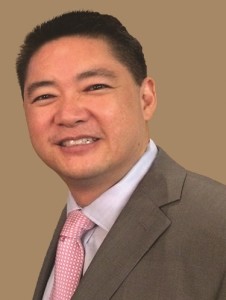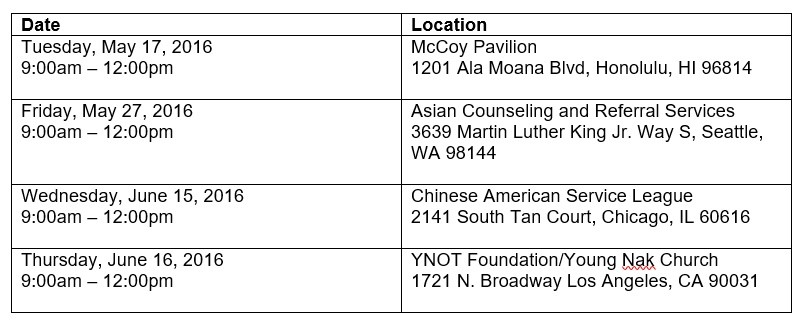 May is Asian American and Pacific Islander American (AAPI) Heritage Month! Back in 2014, we profiled Quyen Dinh, Executive Director of Diverse Elders Coalition member organization Southeast Asia Resource Action Center (SEARAC). This year, the DEC is excited to introduce Dr. Wes Lum, CEO of the National Asian Pacific Center on Aging (NAPCA). After an extensive nationwide search, Dr. Lum was appointed to the CEO position at NAPCA in March 2015 and has been leading the charge for AAPI elders ever since. Read on for more about Dr. Lum NAPCA:
May is Asian American and Pacific Islander American (AAPI) Heritage Month! Back in 2014, we profiled Quyen Dinh, Executive Director of Diverse Elders Coalition member organization Southeast Asia Resource Action Center (SEARAC). This year, the DEC is excited to introduce Dr. Wes Lum, CEO of the National Asian Pacific Center on Aging (NAPCA). After an extensive nationwide search, Dr. Lum was appointed to the CEO position at NAPCA in March 2015 and has been leading the charge for AAPI elders ever since. Read on for more about Dr. Lum NAPCA:
What does AAPI Heritage Month mean to you personally, and as the CEO of NAPCA?
What I love about AAPI Heritage Month is that it shines a spotlight on AAPIs and gives organizations like NAPCA a chance to rally around AAPI aging and to highlight and showcase AAPI older adults. This month promotes partnerships with other organizations like the Congressional Asian Pacific American Caucus (CAPAC) and the National Council of Asian Pacific Americans (NCAPA), which are putting together AAPI Heritage Month events and sessions. The opportunity to coordinate with them, work with them, and continue to build those relationships is really important to us. This month also allows us to kick off our partnership with the White House Initiative on Asian American and Pacific Islanders (WHIAAPI) for our upcoming listening sessions. We are using this month as a way to celebrate and initiate new projects.
Upcoming NAPCA/WHIAAPI listening session dates and locations:

Why did you decide to work in aging advocacy?
When I was going through my public health degree program, I developed an interest in older adults as a “vulnerable population.” I had a great relationship with my own grandparents and had watched them age, watched my parents take care of them when they needed assistance. Additionally, I was a legislative analyst for four years in the Hawaii State Legislature and spent two years as the Director of Government Affairs at the Chamber of Commerce of Hawaii. The combination of my professional background in public policy, along with my academic and personal interest in aging, led me to the field of aging advocacy.
What is the biggest issue faced by AAPI elders, and how can our readers help?
One of our biggest challenges is the implementation of public policies and resource designation to our AAPI older adults. The term “AAPI” covers so many different people. There are over 25 different AAPI ethnicities, speaking over 50 different languages. It is so diverse. Many public policies currently authorize, but not mandate, services and supports to AAPI older adults.
For example, person-centered planning is a great solution and one that I advocate for whole-heartedly, because it takes into account the individual’s values, the individual’s preferences, what “quality of life” means to that individual, and incorporates those into the person’s service plan. Given the fact that AAPI older adults are a diverse population, person-centered planning and service delivery gets to the heart of an individual’s needs and wants.
Person-centered planning is a public policy that is on the books. However, the successful implementation of this policy varies across the nation. We have systems in place that don’t incorporate person-centered planning to its fullest extent. So, any type of advocacy that individuals can do – with their local healthcare providers, with legislators, etc. – to change the way in which services are delivered is helpful.
What is NAPCA doing to support the AAPI communities?
NAPCA is doing a lot! We are currently putting a lot of effort on building the capacity of mainstream aging organizations to be culturally competent and linguistically appropriate for AAPI older adults. Toward the end of this year, will be unveiling a National Technical Assistance Center for AAPI Aging. We will have a new website with resources that mainstream organizations can use to better equip themselves to serve AAPI older adults. That will be very powerful.
This interview has been condensed and edited.
The opinions expressed in this article are those of the author and do not necessarily reflect those of the Diverse Elders Coalition.

